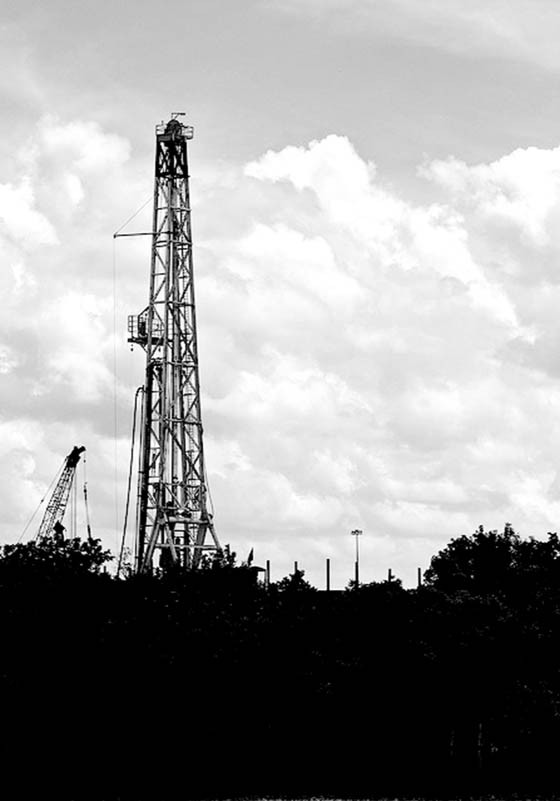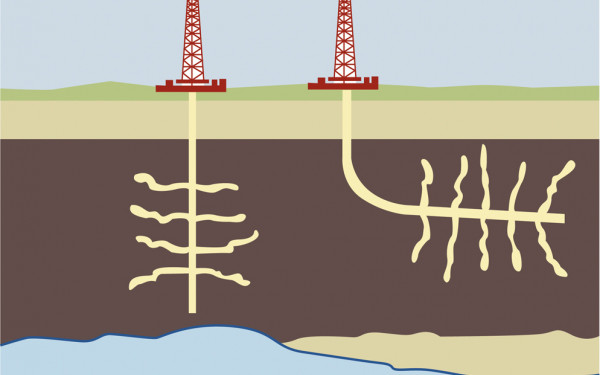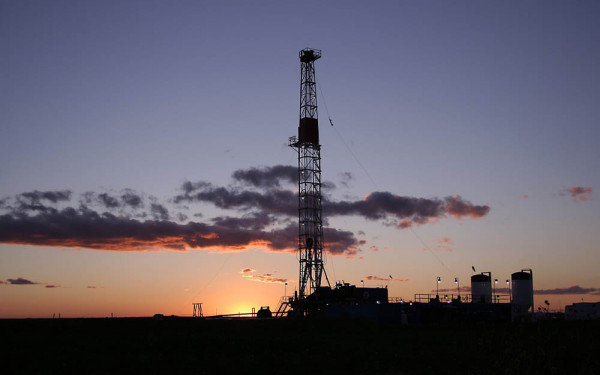What Would Jesus Drill?
Quebec Christian Organizations Oppose Shale Gas Exploration
Christian organizations in Quebec joined the growing mobilization calling for a moratorium on shale gas exploration last week.
The Réseau oecuménique Justice et Paix, along with the Bishop’s office of the Montreal Anglican Diocese, are denouncing what they say is the government’s “ungodly” pursuit of economic gain at the expense of public and environmental safety.
“It is our ethical conviction that the right of people to their well-being and to the health of their territory should take precedence over privileges granted to industry by the state,” the 28 member organizations of ROJeP stated in a press release. “To show contempt to the land is to despise the people that inhabit this land.”
The Bureau d’audiences publiques sur l’environnement recently published an environmental impact report on hydraulic fracturing, or “fracking,” but Quebec’s Minister of Sustainable Development Pierre Arcand has yet to publicly release the results of the inquiry, which began late last summer.
A parallel report issued by a citizens group calling themselves Maîtres chez nous 21e siècle was released to Minister Arcand last Monday. Based on 200 documents, the 123-page online report calls for a stop to fracking in Quebec, noting that shale gas is not economically viable and does not meet standards for clean, sustainable development.
Among the 200 documents reviewed within the Maîtres chez nous report was a cost analysis from l’Institut de recherche et d’information socio-economiques, which estimated more than $50-million per year in losses for the province of Quebec from the shale gas industry.
“The raison d’être of the government is to look after the public interest and not be enslaved to industry,” said Guy Côté, a representative from ROJeP. “There is a lack of transparency and the government has acted without sufficient evaluation of all the consequences. There is almost a despising for people’s concern because of the priority given to the economic growth falsely expected from this project.”
The ecumenical network’s recent announcement is part of a growing opposition to fracking across the province.
According to a recent survey of 1,000 Quebecers conducted by Le Devoir, 55 per cent are against drilling for shale gas—up from the 37 per cent last September. More than 128,000 people have signed an online petition calling for a moratorium on development.
“More and more controversy is arising,” said Reverend Gwenda Wells of the Anglican Diocese. “But despite the fact that there are rising concerns about radioactivity in groundwater, no studies have been done on the water leaking from shale gas fracking [in Quebec].”
The New York Times recently obtained documents showing that waste-water resulting from fracking is “often laced with highly corrosive salts, carcinogens like benzene and radioactive elements like radium,” which, when discharged into rivers that supply drinking water, contain higher levels of radioactivity than can be safely treated. New York state imposed a moratorium on fracking last year.
Geraint Lloyd, a geophysicist and independent consultant on drilling within the St. Lawrence Valley, told The Link in September that risk of groundwater contamination was low due to an incredibly high water-to-chemical ratio, the depth of drilling and the non-porous nature of the shale rock.
“Any sort of failure or contamination issue comes down to engineers, not the procedure,” he said. “With the high safety standards in Quebec, I can’t see this being an issue.”
But the Charest government’s stance has shifted considerably over the last six months since two thirds of the 31 existing exploration shafts were found to have leaks. In mid-January, Minister Arcand admitted that “the industry is not in control of the situation” and that he was “extremely concerned.”
“The government is responsible for being a good steward of the resources entrusted in its care,” said Rev. Wells. “Its responsibility as an elected caretaker organization is to make sure development is not approved if there is reasonable doubt that it is not safe for humans and the environment.”
An estimated 40 billion cubic feet of shale gas reserves exist in Quebec with the potential to sustain the province’s energy needs for the next 200 years, according to the Department of Natural Resources.
This article originally appeared in Volume 31, Issue 25, published March 8, 2011.





_600_375_90_s_c1.jpg)
__600_375_90_s_c1.jpg)